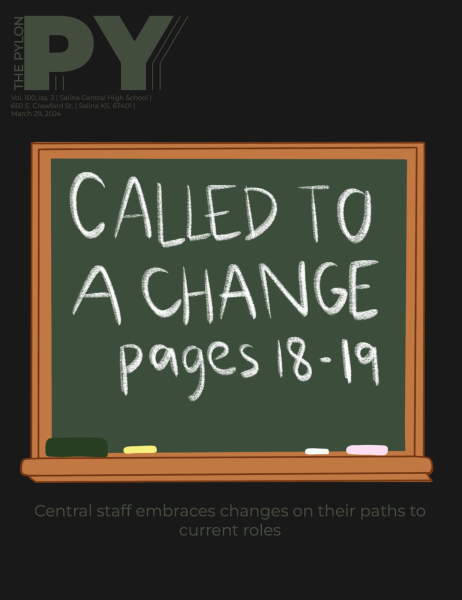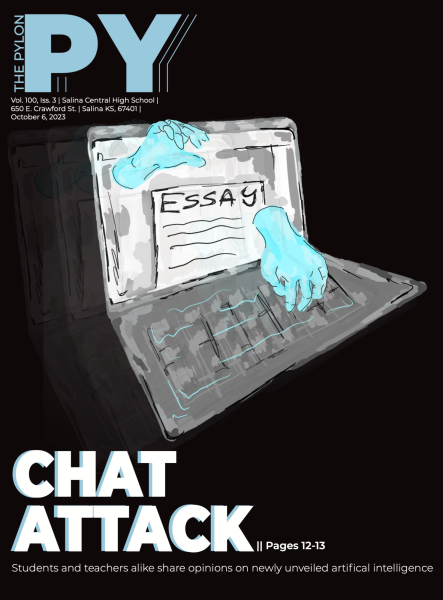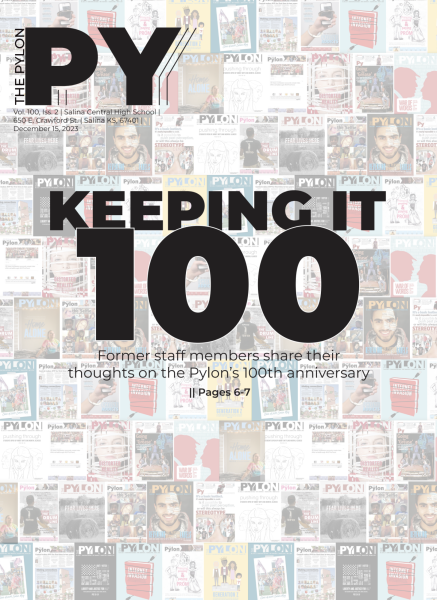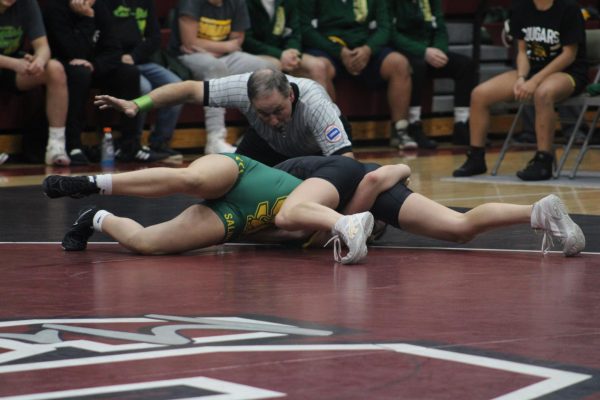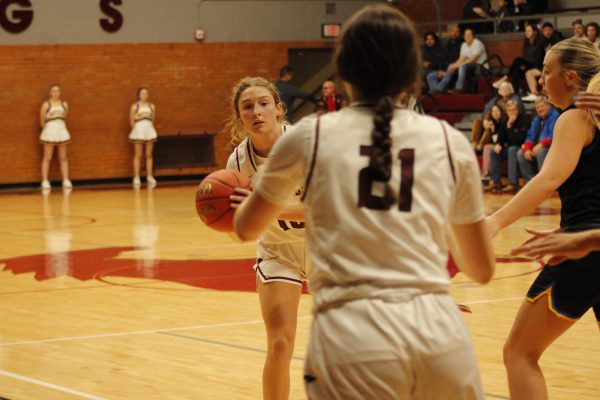The Birds and the Bees
Abstinence is what every highschooler has been taught since day one. The phrase, “safe sex is no sex” has been preached over and over again. Birth control, condoms, and other contraceptives have not been implemented into sex education. But now times are changing, sex is becoming very common and statistics only seem to get higher.
Up until this past spring, Salina Central has not been able to teach anything more than abstinence.
Health Teacher Jessica Putman explains the drastic change in sex education.
“We are able to go more of the route of being able to talk about relationships, lifestyle choices, disease prevention, and contraceptives. We will be going over responsibilities from adolescence to adulthood, insurance, cost of a baby, things like that. But the main thing we can cover now are contraceptives as we weren’t allowed to before,” Putman said.
Teacher Traci Peifer and another teacher from South sat down last spring, along with other board members and created the new curriculum. Putman believes now that with the new curriculum, it´ll be a bigger benefit to students.
“I would say that before the curriculum changed, it was not very beneficial. I think now, students will be more interested to learn those sorts of things. Not everyone follows those specific rules so I’m glad that we have this in our curriculum now,” Putman said.
Junior Bailey Talbott thinks that just teaching abstinence comes with lots of good and bad.
“I think it´s a good thing that we are taught in school that we shouldnt have sex yet because so many bad things can happen. Also some kids are never told about safe sex. But abstinence is also a choice and some people don’t believe that and that’s perfectly okay,” Talbott said.
Abstinence has been something that has been taught for a number of years in schools. The solution regarding sex has always been to simply not do it.
School nurse Cassie Chesney believes that a lot of it strives from the fact that abstinence has always been the ̈easier ̈option.
“I think some of it is based on people’s moral beliefs, religious beliefs, or their values. Also it’s the easiest to say,” Chesney said.
Cheney thinks that it is important to teach more than abstinence in schools as well.
“I think it is super important to not just focus on abstinence because that doesn’t apply to everybody. Abstinence hasn’t been applied to anyone as long as it’s been taught. I do think it should remain as an option but I think it’s not realistic to just focus on that. Especially now there is data that shows if you educate people on their options, it does not encourage people to have sex,” Chesney said.
Nowadays, as things begin to modernize, so does help with prevention.
“Studies have shown that by teaching other ways of safe sex. Parents were concerned in other districts and states that it would increase the likelihood, but it did not. From a medical and safety standpoint, it is very helpful to teach more than just abstinence. Especially now compared to back then, there’s so many more options. With IUDs and implant technology that we have, there are lots of options for women and men,” Chesney said.
Talbott believes that abstinence, however is the safest option.
“It’s definitely the best way to not get pregnant and to not get any sexually transmitted diseases. But of course there are many other options,” Talbott said.
A lot of the curriculm has input by the parents and community on what we should or should not teach pertaining to sex educaiton.
There are now many options around the school bathrooms with posters advertising clinical and safe sex help for young teens.
“I had students coming to my office for questions on things like pregnancy and birth control. A lot of people don’t realize that the Health department operates on what’s called Title IV,” Chesney said.
Title IV can help you with family planning, birth control, and getting any other contraceptives. They also can help you if you think you have an STI. Title IV can do all of this without even telling anyone as well.
“A lot of people are worried about seeking help because they are worried that their parents will find out or there gonna be dissapointed. But how that operates under Title IV, they don’t ́t mail things to your house and their bills are based off how much you make, as most high schoolers don’t make much. I thought it would be important to help you realize what is available to help you guys,” Chesney said.
Growing up and high school in general can be scary but Salina has many resources to help you through that process.
“I would say that before the curriculum changed, it was not very beneficial.”
— Health teacher Jessica Putman


